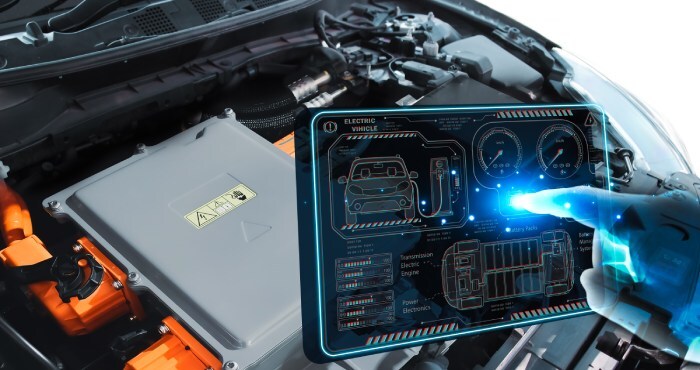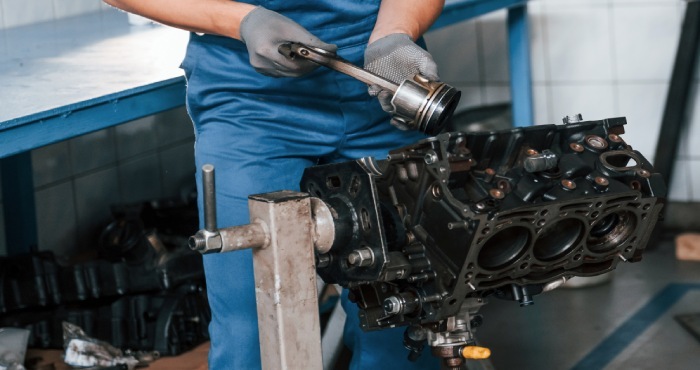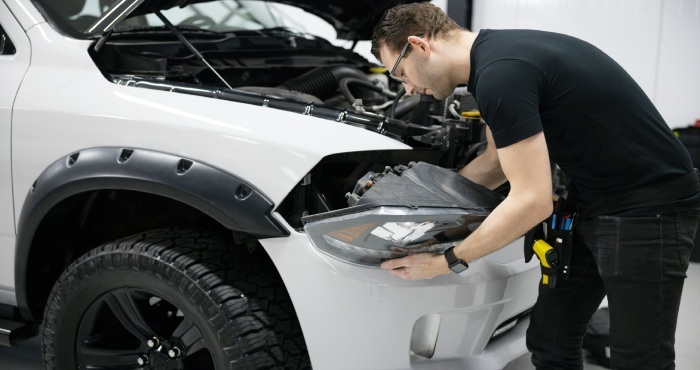The Lemon Law serves to safeguard individuals who buy or lease faulty automobiles. These regulations prevent consumers from being burdened with a “lemon,” which refers to a vehicle that remains unrepaired after several attempts. However, the situation becomes more complex if you have altered your vehicle in any way. Modifications such as adding aftermarket components, tuning the engine, or adjusting the suspension can affect your eligibility for protection under the Lemon Law.
This article delves into the implications of vehicle modifications on Lemon Law claims, outlines situations in which you can still pursue recourse, and provides tips to protect your rights.
Understanding Lemon Law Basics
Before exploring how alterations influence your claim, it’s important to clarify what Lemon Law actually means.
Lemon Laws differ from one state to another, but they generally pertain to new cars (and occasionally used ones) that are still under the manufacturer’s warranty. The primary conditions usually include:
- The vehicle has a major defect that is covered by the warranty.
- The manufacturer or dealership has made several attempts to fix the problem.
- The defect has a significant impact on the vehicle’s safety, worth, or functionality.
- The car has been in the repair shop for an extended period (often totaling 30 days or m
If a vehicle fulfills these criteria, the owner may be eligible for a refund, a replacement vehicle, or monetary compensation.
Modifying Your Vehicle: What Counts as a Modification?
Alterations to vehicles can vary significantly, from slight aesthetic tweaks to major performance enhancements. Typical modifications include:
- Upgraded wheels or tires from aftermarket sources
- Unique paint finishes or vinyl wraps
- Adjustments to the suspension for height changes
- Engine tuning or installation of performance chips
- Adding turbochargers or superchargers
- Enhancements to the exhaust system
- Interior modifications such as custom upholstery or upgraded audio systems
Although these changes can make your vehicle more distinctive or improve its capabilities, they may also complicate your legal rights in the event of issues.
How Modifications Impact Lemon Law Claims
1. The Key Issue: Causation
In Lemon Law cases concerning altered vehicles, the key consideration is whether the modification played a role in creating or exacerbating the defect.
- If the modification is determined to be the source of the problem: Your Lemon Law claim might be rejected. For example, if you added an aftermarket turbocharger and subsequently experienced engine failure, the manufacturer could contend that your modification invalidated the warranty and led to the breakdown.
- If the defect is not connected to the modification: You might still qualify for protection under the law. For instance, if your transmission malfunctions and your only alteration was replacing the exhaust, you could still be entitled to Lemon Law remedies.
2. Manufacturer’s Burden of Proof
According to federal regulations and the majority of state statutes, the responsibility lies with the manufacturer to demonstrate that a modification led to the defect. Simply altering a component of your vehicle does not inherently eliminate your rights.
The Magnuson-Moss Warranty Act, a federal statute, safeguards consumers by ensuring that manufacturers cannot refuse warranty claims merely due to the installation of aftermarket parts, unless they can prove that those parts were the cause of the issue.
California Lemon Law and Vehicle Modifications
California boasts one of the most robust Lemon Laws in the United States, known as the Song-Beverly Consumer Warranty Act. This law typically applies to:
- Newly purchased vehicles (including leased ones)
- Certain used vehicles that are still under the manufacturer’s warranty
- Vehicles acquired for personal, family, or household purposes
Under California Lemon Law, you can still file a claim even if you’ve made modifications to your vehicle—so long as those changes did not cause the defect. California Lemon Law lawyers can help prove that your modifications are unrelated to the issue.
For instance:
- Allowed: If you installed custom leather seats and your car experiences an electrical problem, the two issues are not connected, so you can proceed with a claim.
- Denied: If you added aftermarket headlight wiring that causes a short circuit affecting the entire electrical system of the vehicle, this modification directly resulted in the defect, meaning the Lemon Law may not be applicable.
Common Scenarios: Modifications and Lemon Law Outcomes
Situation 1: Upgraded Wheels and Suspension
When you opt for larger wheels and a suspension lift, any subsequent transmission failure is probably not connected to those modifications. You may still be eligible for protection. However, if your vehicle experiences alignment or drivetrain problems, the manufacturer might claim that the modifications played a role.
Situation 2: Engine Tuning or ECU Reprogramming
Modifying your engine through tuning is one of the most precarious alterations regarding Lemon Law protections. Changes to the vehicle’s software can influence engine performance, fuel efficiency, emissions, and overall durability. If you encounter engine problems afterward, anticipate that the manufacturer will reject liability.
Situation 3: Aesthetic Modifications
Changes like custom paint, revamped interiors, or tinted windows generally do not affect mechanical components. Such modifications typically do not invalidate your rights — unless they impair visibility or breach local safety regulations.
Dealer-Installed Modifications: A Gray Area
Should your vehicle have been altered by the dealer prior to or during the transaction — like the addition of custom wheels, a spoiler, or an enhanced sound system — the circumstances shift somewhat. Because these upgrades were provided or fitted by the dealer as part of the sale, they become integrated into the initial purchase contract.
In such instances, your rights under the Lemon Law remain intact. The responsibility for any issues may rest with the manufacturer, the dealer, or potentially both, depending on who executed the modifications. To safeguard your interests, it is advisable to request a comprehensive written list of all options installed by the dealer at the time of buying.
Protecting Your Rights After Modification
If you’ve made changes to your vehicle, consider taking these proactive measures to protect your rights under the Lemon Law:
Keep Thorough Records
Maintain comprehensive documentation of:
- All service visits and repair efforts
- Correspondence with the dealer or manufacturer
- Details of modifications, including part numbers and who installed them
- Warranties for any aftermarket components or services
Choose Certified Installers
Opting for modifications performed by authorized technicians minimizes the chances of subpar work and can help demonstrate that the modification did not contribute to any defects.
Familiarize Yourself with Your Warranty
Carefully review the specifics of your warranty agreement. Some manufacturers provide limited warranties for vehicles or parts that have been modified. For example, Mopar (Chrysler’s parts division) may offer warranty protection on their performance components.
Seek a Professional Evaluation
If your claim is rejected due to a modification, consider consulting an independent mechanic to assess whether the defect is connected to the modification. An unbiased third-party evaluation can bolster your position.
What If the Manufacturer Denies Your Claim?
If the manufacturer rejects your Lemon Law claim due to modifications, don’t worry. You still have several options available:
Consult a Legal Professional
Reach out to a Lemon Law attorney, ideally one who has experience with modified vehicles. They can:
- Determine if the defect is genuinely connected to the modification
- Challenge the manufacturer’s assertions using expert testimony
- Initiate a lawsuit on your behalf if necessary
In many instances, California law permits the manufacturer to cover your legal expenses if you prevail in court, which means you might not have to pay anything upfront.
Submit a Complaint to the BBB or Pursue Arbitration
Some manufacturers may require arbitration prior to any legal action. You can lodge a complaint through programs like the BBB AUTO LINE, which addresses vehicle warranty issues. Nonetheless, having legal representation is advisable, particularly for complicated modification situations.
Used Cars and Aftermarket Parts: Does It Matter?
When purchasing a pre-owned vehicle that has aftermarket components added, your eligibility for coverage might hinge on the following factors:
- The status of the manufacturer’s original warranty
- If the defect was present prior to your acquisition
- Whether the modifications were made by the dealer or an outside source
Ultimately, the crucial question is: Did the alteration lead to the defect?
Key Takeaways
Even if you’ve made changes to your vehicle, you might still qualify for Lemon Law protections, provided the issue isn’t linked to those alterations.
To reject your claim, the manufacturer needs to demonstrate that your modifications led to the issue.
Typically, cosmetic alterations do not forfeit your Lemon Law rights; however, performance enhancements such as engine tuning or suspension upgrades might impact your eligibility.
The California Lemon Law favors consumers, and a skilled Lemon Law attorney San Diego CA can help you navigate any disputes arising from vehicle modifications.
Modifications installed by the dealer generally do not negate your rights, as they are included in the purchase contract.
Final Thoughts
Vehicle Modifications and California Lemon Law can intersect in complex ways, but modifications don’t automatically disqualify you from legal protection if your car develops issues. Enhancing your vehicle’s performance or appearance is common, yet when defects arise, the critical factor is whether the modification directly caused the problem. If the defect is unrelated, you may still qualify for a refund, replacement, or repair under California Lemon Law. To handle such cases effectively and protect your rights, it’s crucial to consult a California Lemon Law attorney early for accurate guidance and thorough documentation.









